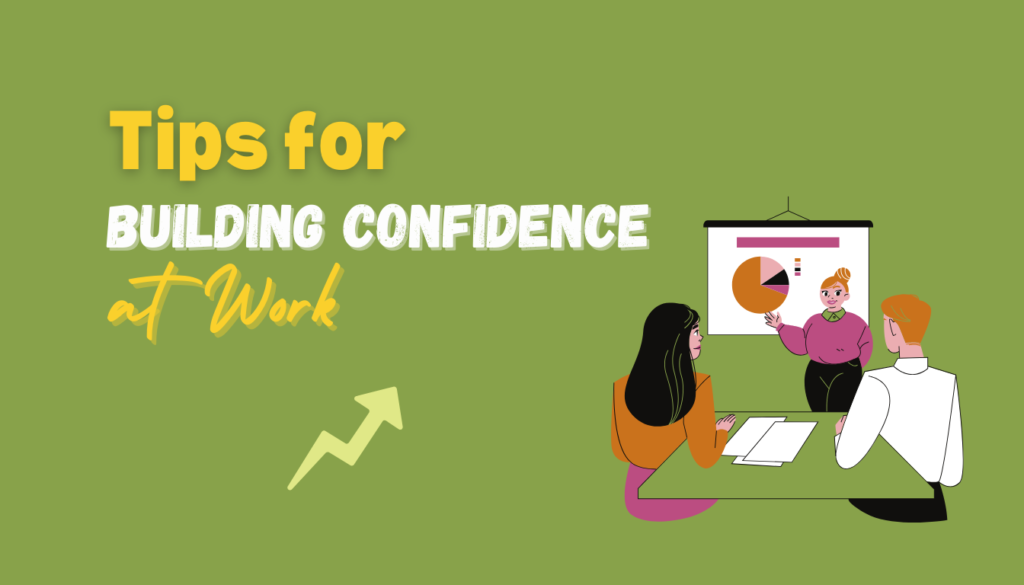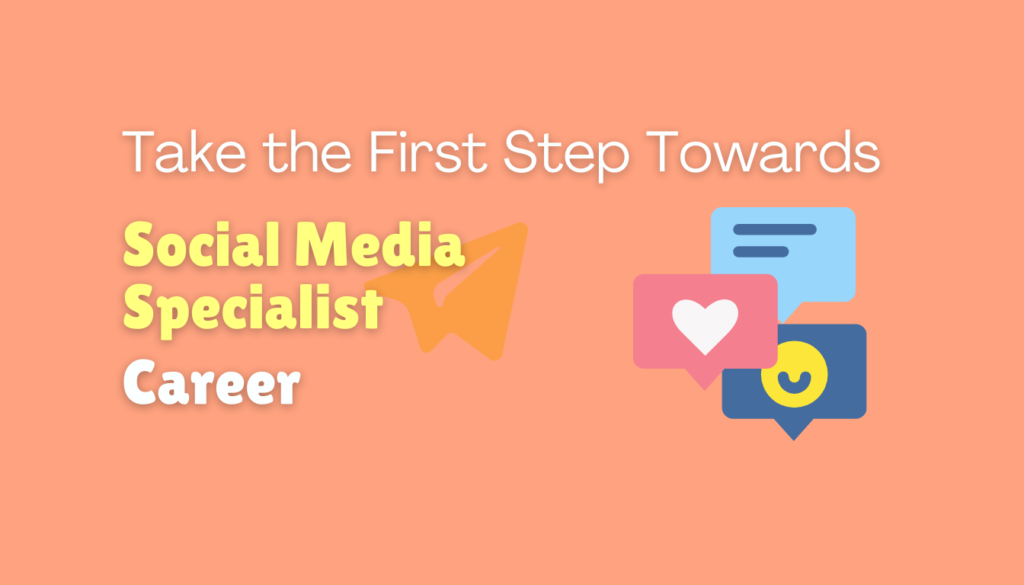Have you ever felt like a fraud, even though you’ve achieved a lot and have many qualifications?
You’re not alone. More than 80 percent of employees or entrepreneurs will feel this at some point.
But, you can beat this self-doubt. By doing so, you can gain amazing confidence and succeed in your career.
Discover what imposter syndrome is and 9 tips for building confidence at work.
What is Imposter Syndrome?
Imposter syndrome is when you doubt your own achievements at work. People with this may think they’re not capable, even though they are.
Over 80 percent of workers have felt this way at some point. This info comes from the American Psychological Association.
Those with imposter syndrome often lack confidence at work.
They’re very hard on themselves for small mistakes. They worry about not doing well for their team and end up burning out.
Recognizing you have imposter syndrome is a first step to addressing it at work.
Once you know about imposter syndrome, you can work on strategies to feel better. The goal is to trust in your skills and success.
This way, you can be more confident and do well in your career.
The Impact of Imposter Syndrome
Imposter syndrome greatly affects a person’s career and mental health. It brings self-doubt, anxiety, and fear, making them lose confidence.
This can lead to isolation from coworkers, working too hard, and feeling exhausted.
The impact isn’t just personal. It affects how well we do at work and our career growth.
People with imposter syndrome might not take on new challenges. They worry about being seen as fake, so they say no to opportunities.
This fear stops them from trying to get promotions or asking for raises. They might even avoid applying to jobs they’re perfect for. This puts a big block on their professional success.
Imposter syndrome doesn’t just hurt a person’s work. It also affects their emotions and how they connect with others.
Dealing with this feeling is key to doing well and being happy at work. Everyone can achieve more by overcoming this challenge.
Overcoming Imposter Syndrome at Work
Dealing with imposter syndrome at work involves several steps. Follow these 9 tips if you think you need it.

1. Set Realistic Goals
One key way to beat imposter syndrome is by setting realistic goals for yourself. Instead of trying to be perfect or comparing to others, aim for small improvements.
Recognize your current limits. Then, make plans to go beyond them. This approach boosts both your skills and confidence. It makes you less prone to self-doubt and anxiety.
Focus on small steps forward. Celebrate every mini-win, no matter how small! Doing so helps you feel more positive and ready to face bigger challenges. This builds a strong mind and self-belief.
Using good goal-setting tactics is crucial too. Break big goals into little milestones. This lets you feel in control and successful along your career path.
It keeps your expectations real at work and helps you fight imposter syndrome.
2. Track Your Progress
It’s vital to monitor progress and celebrate achievements, even the small wins.
Track your progress by looking at clear signs of success, like finishing projects early or getting positive feedback. This helps shift our focus from what we lack to what we’ve achieved.
Doing so boosts our self-confidence and fights off doubt, which feeds imposter syndrome.
To mark your wins and see growth, try a progress log or an achievement journal.
Looking back at these can show your journey and remind you of your capabilities. It reinforces the idea that you’ve earned your success.
Remember, the road to success isn’t straight, and everyone faces setbacks. By cheering every success, big or small, we develop a strong mind and learn to accept ourselves.
This approach helps us stand against imposter syndrome’s challenges.
3. Write Out Your Strengths
Feeling like an imposter often comes from not really knowing ourselves. We can’t see how skilled and strong we are.
Making a detailed list of what we’re good at can help. It reminds us of our worth, and fights off those feelings of not being enough.
Getting to know ourselves and listing what we’re good at is key to beating imposter syndrome. Knowing our strengths makes us more confident and able to succeed in our jobs.
- Take a moment to reflect on your past successes and accomplishments.
- Make a comprehensive list of your professional strengths, including both hard and soft skills.
- Highlight specific examples that showcase your competencies and achievements.
- Review the list regularly to reinforce your self-awareness and build your confidence.
Listing our strengths and realizing our abilities is a big step to fighting imposter syndrome. It helps us be true to ourselves at work.
4. Practice Positivity and Use Affirmations
It’s important to challenge negative self-talk and practice positive self-talk to beat imposter syndrome.
To do this, we should change our negative thoughts to more realistic views. Using affirmations like “I am capable and deserving of success” also boosts our confidence.
Consistently being optimistic and showing yourself kindness helps fight imposter syndrome.
To break away from harmful thoughts, replace them with powerful statements. Instead of focusing on what we lack, recognize your strengths and wins.
Embracing a growth mindset and positive self-talk helps reduce self-doubt.
Using affirmations regularly is a strong weapon against imposter syndrome. You can write, say, or imagine them. Doing so helps us see ourselves in a better light.
By affirming our abilities and worth, we internalize these positive beliefs. This weakens imposter syndrome’s influence on us.
In the end, staying optimistic and positive is key to beating imposter syndrome. By countering negative thoughts and using affirmations, we move past self-doubt.
This empowers us to have the confidence we need for success.
5. Connect with Coworkers
Feeling lonely with imposter syndrome makes it worse. Building work relationships is key.
A good friend at work offers essential social support. They remind us we’re not alone in this fight. By talking about imposter syndrome, we share and learn together.
Chatting with coworkers or joining a mentorship program can turn the table on imposter syndrome.
Sharing our stories helps us overcome self-doubt. A trusted confidant offers comfort and wise advice, making us more confident.
Plus, these work friendships can make us feel at home at work. Support from colleagues fights the negative messages of imposter syndrome. It helps us truly be ourselves with confidence.
6. Eliminate Negative Language
Imposter syndrome often comes from negative self-talk and self-criticism. To beat this, let’s avoid using eliminate negative language.
We need to talk to ourselves in a better way. Instead of focusing on what we think is wrong, let’s see what we’re good at.
We should celebrate our wins, big or small. It’s also key to be as kind to ourselves as we are to our friends.
Changing how we think and being less hard on ourselves helps. By being careful about the words we choose, we can fight these negative feelings.
We should replace bad thoughts with ones that make us feel stronger.
For example, we don’t say “I’m not good enough.” Instead, we can say “I’m still learning, and I’m getting better.”
If we make a mistake, we don’t need to be so hard on ourselves. We can learn from that mistake and do better next time.
Changing how we talk to ourselves and think about things can really boost our self-confidence. It helps us battle imposter syndrome, especially at work.
7. Dress for Success
The way we look and feel in our jobs matters a lot. It can greatly affect how we see ourselves and feel about our abilities.
Choosing clothes that make us feel professional helps match our outer look with how valuable we feel inside. This can fight off bad feelings like not being good enough or doubting ourselves, helping us feel and be successful.
Buying clothes for work that boost our confidence is a smart move. It changes the game in beating imposter syndrome.
When we look successful, we show others and ourselves that we’re skilled and knowledgeable. This makes us feel better about who we are and what we can do.
Making smart wardrobe choices can change how others see us. It tells the world that we’re strong and deserve the chances we get.
Doing this is a key way to face and beat the doubts that kept us from moving forward before.
8. Seek Out Resources
Overcoming imposter syndrome is easier with help. We should look for resources like professional development, mentorship programs, and support groups.
They can guide us and offer new ideas, tips, and support. This helps boost our confidence and success at work.
Attending professional development events helps a lot. They give us insights and tools to deal with feeling like a fraud.
Finding a mentor who has faced the same challenges is good, too. They can give us advice that fits our situation.
Also, joining support groups can be beneficial. They let us meet others who know what we’re going through. This way, we can swap stories and tips for becoming more self-assured.
Using these external resources can really change things for the better. When we connect with and learn from others, we get better at fighting those moments of doubt.
In the end, we do better in our careers and feel stronger.
9. Be Persistent
Beating imposter syndrome and building confidence at work takes time and effort, not a quick fix. It’s about a continuous process that requires persistence and consistency.
We face obstacles and ups and downs. Yet, sticking to the advice will help us boost our confidence for work success.
Keeping a long-term mindset is crucial. Even when things get tough, we need to stay the course. Using positive methods can push us past the self-doubt and feelings of being a fraud.
Being consistent is key in overcoming setbacks and grows confidence. Striving with methods like setting goals and practicing positive thinking helps.
Over time, we can lessen the effect of imposter syndrome.
Defeating imposter syndrome is like running a marathon, not a sprint. With persistence and a commitment to our personal growth, we can leave self-doubt behind.
We’ll become the genuine, skilled professionals we’re meant to be.





